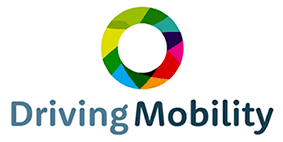Disabilities
On this page you will find links to information outlining how, and under which circumstances Healthcare Professionals should refer their patients to us for a driving assessment.
Acquired Brain Injury
The brain controls nearly everything we do which means that an acquired brain injury (ABI) can have significant impact on our ability to function and drive.
Amputation
An amputation is the surgical removal of part of the body, such as an arm or leg. If you have had an amputation and you intend to drive you must inform the DVLA.
Arthritis
Arthritis is a common condition that causes pain and inflammation in a joint. In the UK, more than 10 million people have arthritis or other, similar conditions that affect the joints. The most commonly affected joints are those in the hands, spine, knees and hips.
Cerebral Palsy
Cerebral palsy affects the brain with many people experiencing movement and co-ordination difficulties and a range of other problems which may affect speaking, vision and learning. Each person is unique and difficulties, which can affect driving safety may present in a variety of ways.
Dementia
Driving relies on a mix of mental abilities which need to be undertaken quickly, safely and consistently. In the early or mild stages of the condition, the person may still be able to drive safely as driving is a well learned skill.
Eyesight and Hearing Impairment
Having a visual or hearing impairment does not necessarily mean retiring from driving. There are, however, minimum eyesight requirements which must be met by all drivers.
Multiple Sclerosis
MS is a life-long neurological condition that can affect the brain and spinal cord. MS is one of the most common causes of disability in younger adults and women are more likely to experience the condition than men. More than 130,000 people in UK are living with MS.
Parkinson’s Disease
Parkinson’s is a medical condition affecting parts of the brain. Therefore this condition can present in a variety of different ways which may affect your driving.
Special Educational Needs
It may or may not be possible for people with special educational needs to learn to drive to the required standard, and an assessment is recommended to explore this further.
Spinal Injury
Damage to the spinal cord can be caused by a trauma like an accident, or as a result of infection or disease.The higher up you damage the spinal cord, the more movement and sensation will be lost.
Stroke
Some people who survive a stroke are left with long term changes caused by the clot or bleed on the brain and this can, in some cases, affect the ability to drive safely.
Help and Advice

Help with
Driving
Need advice or help to get back to driving after injury or illness. Are you safe to drive?

Help with
Mobility Scooters
Herts Ability offers a free, impartial assessment on which scooter is suitable for you.







